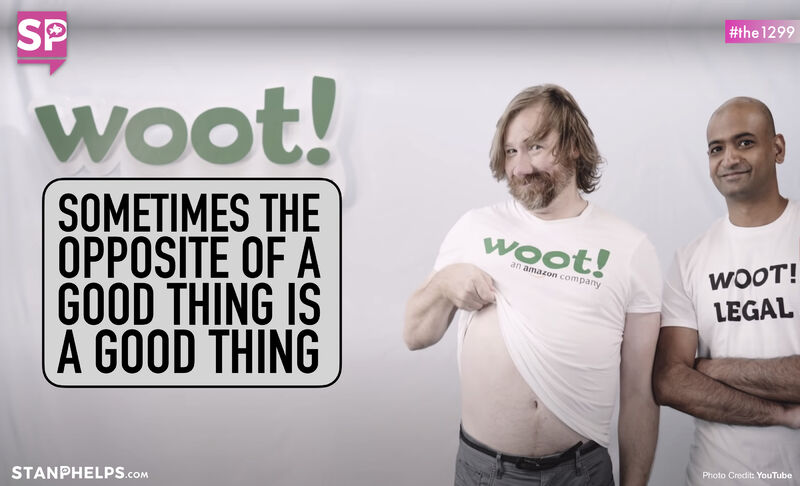Beating Amazon. Sometimes the opposite of a good thing is also a …
… good thing.
Amazon is big. Very, very big. They sell almost everything, to almost everyone, almost everywhere, every hour of every day.
How can you compete with that? Is it possible to be bigger than Amazon?
Can you sell more things from A to Z, to more people, in more places, more often? Probably not. So what can you do?
Call it George Costanza logic, but what if you sold one thing, to a small number of people, in one place, for just one day?
Would that work?
Matt Rutledge created Woot, Inc. and it went online in July 2004. The site was simple. Woot! offered one item, in limited amounts, only to US residents, for just one day or until the item sold out.
Their tagline was “One Day, One Deal.”
The items weren’t announced in advance. It was like an online garage sale. First come, first served.
It created an urgency that no one would ever feel with Amazon.
Products could not be exchanged because most items sold out. This added an element of risk and excitement that Amazon doesn’t have.
There was no customer support. Sorry! Buyers were directed to the manufacturer’s website for assistance. Rutledge encouraged copywriters at Woot! to be entertainingly frank about the flaws and shortcomings of the often obsolete products sold on the site:
“We feel that if we don’t do a good job describing what’s wrong with a product, people will assume we just don’t know. That’s where most retailers fail. To them, every product is perfect.”
Customers had to be willing to make a trade-off warts and all in order to get a bargain. These products were flawsome.
And forget Prime Now, this was Prime Nothing. There was no free shipping, especially since many of the items were bulky and expensive to transport. The low prices often offset the shipping costs.
Did it work?
In just four years Woot! was named the number one Fastest Growing Private Retail Company in America. Woot’s unconventional strategy worked so well that Amazon bought Woot! in 2010 in a nine-figure deal.
Amazon was smart enough to realize that Woot! was a legitimate competitor.
They saw the strengths in Woot’s apparent weaknesses and added Woot! in order to diversify their company.
Woot! is a strong example of the Pink Goldfish of Opposing. Opposing involves defying, resisting, and fighting. It’s refusing to give in, to yield, to submit, to surrender to the pressure to conform. You refuse to fit in and to follow the crowd.
How are you doing the opposite of what everyone does as “normal”? Because sometimes the opposite of a good thing is also a good thing.
Follow me on Twitter or LinkedIn.

Stan Phelps walks the walk. He stands out in the sea of sameness by modeling his own Differentiated Experience (DX) message: Differentiation isn’t just about what you say, it’s about what you do and, more importantly, how and why you do it. Stan leverages his unique collection of 5,000+ case studies on customer, employee, and brand experience to engage audiences with informative learning-based experiences. He believes purposeful DX wins the hearts of employees and customers, and differentiation ultimately boosts loyalty, retention, referrals, and results.
Find Stan’s in-person and virtual keynotes, workshops, and Goldfish tank programs at StanPhelps.com.

